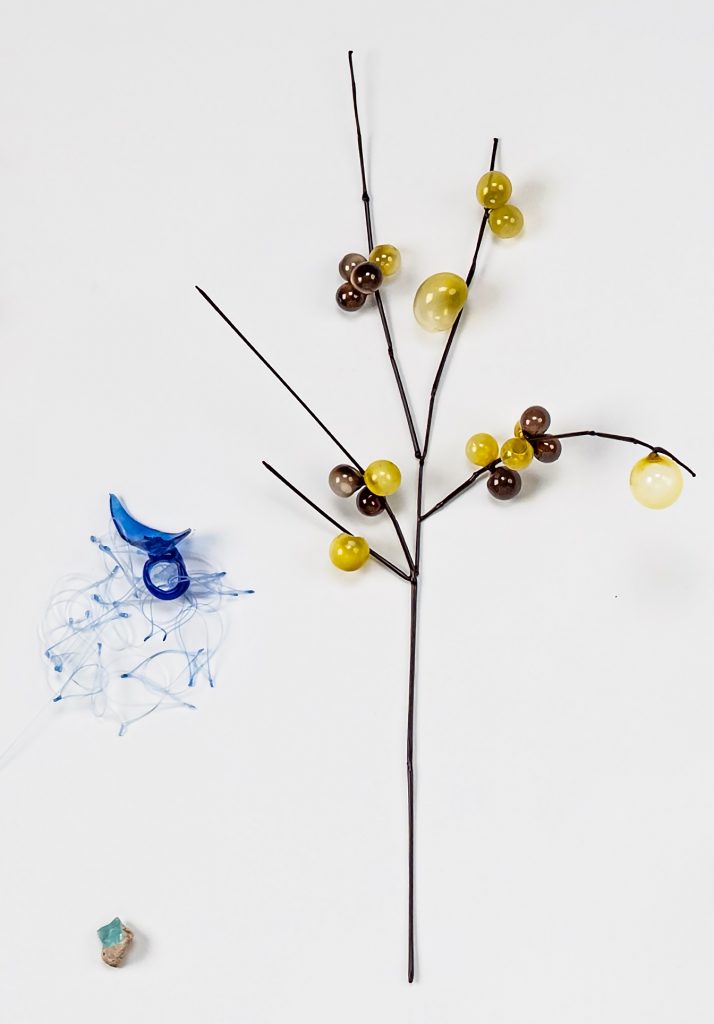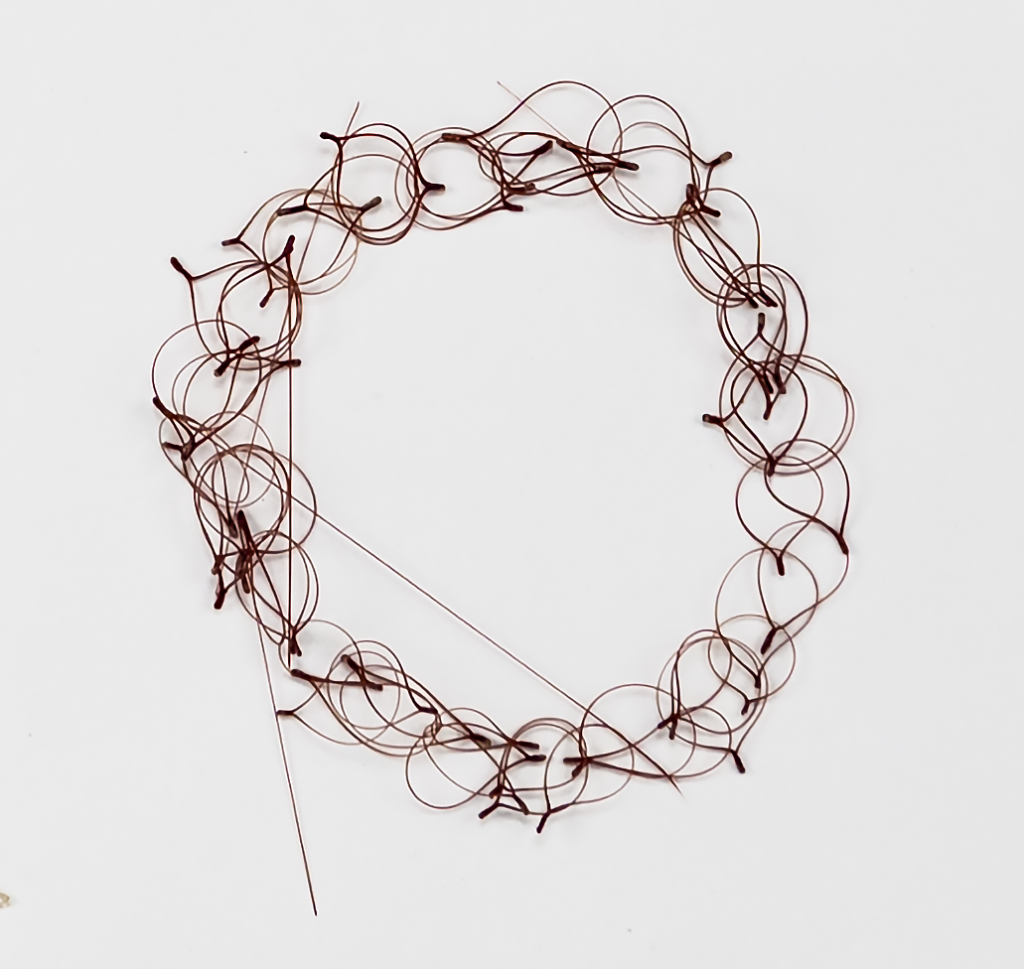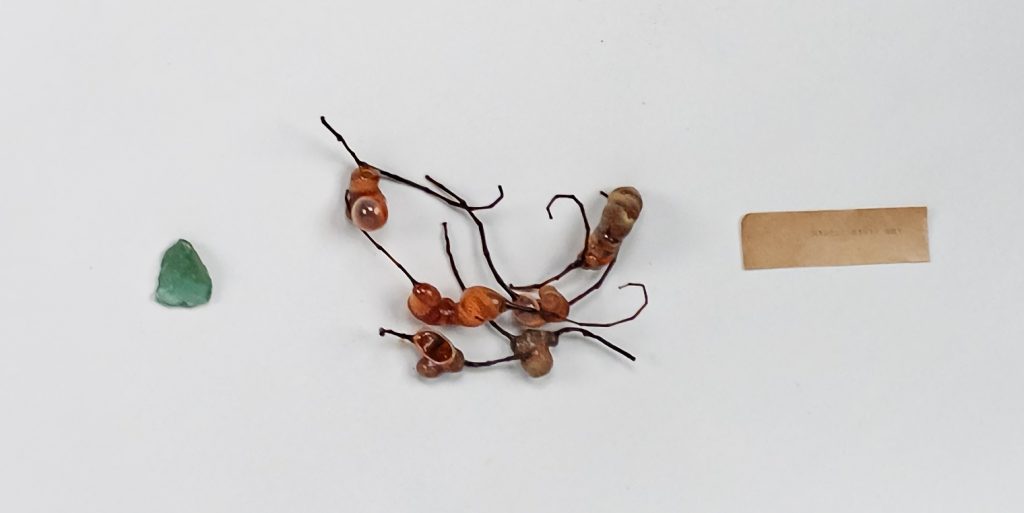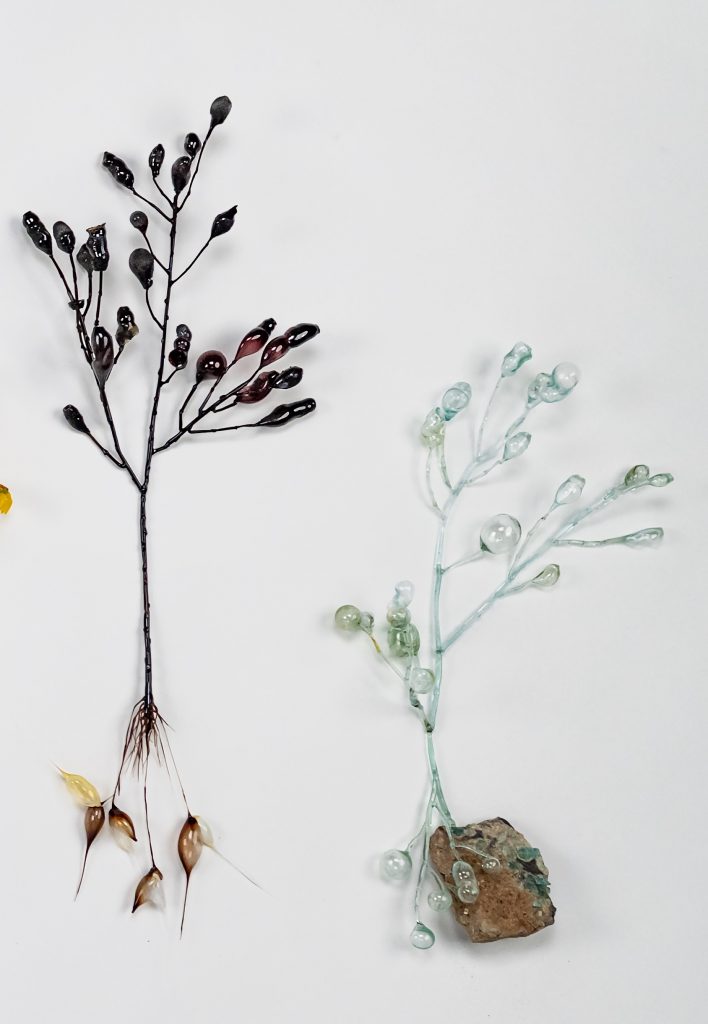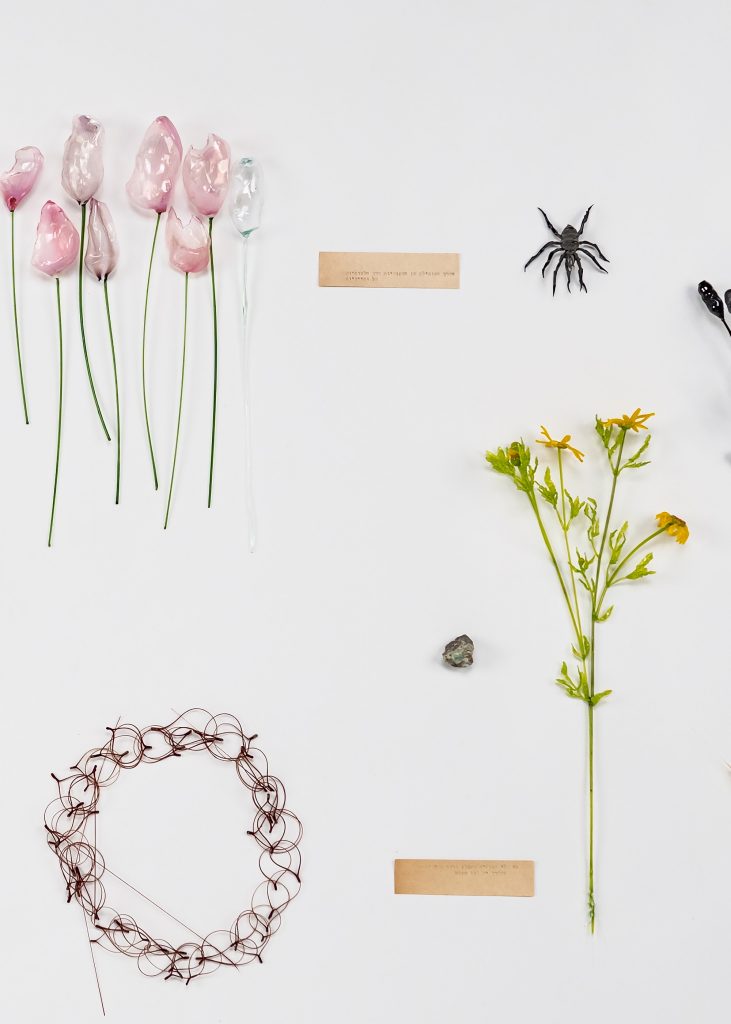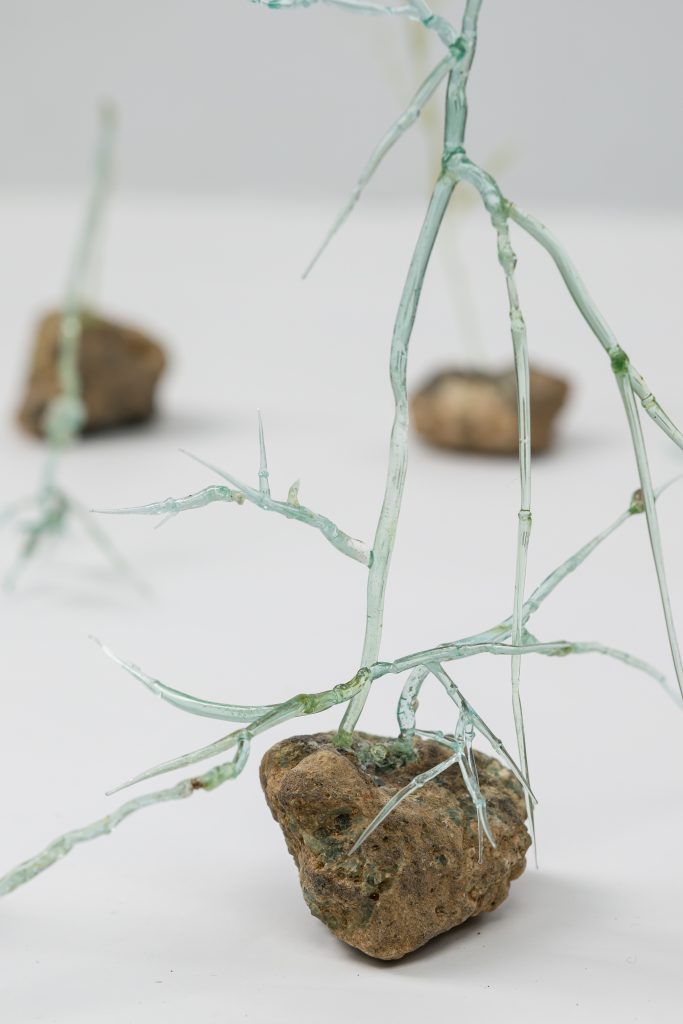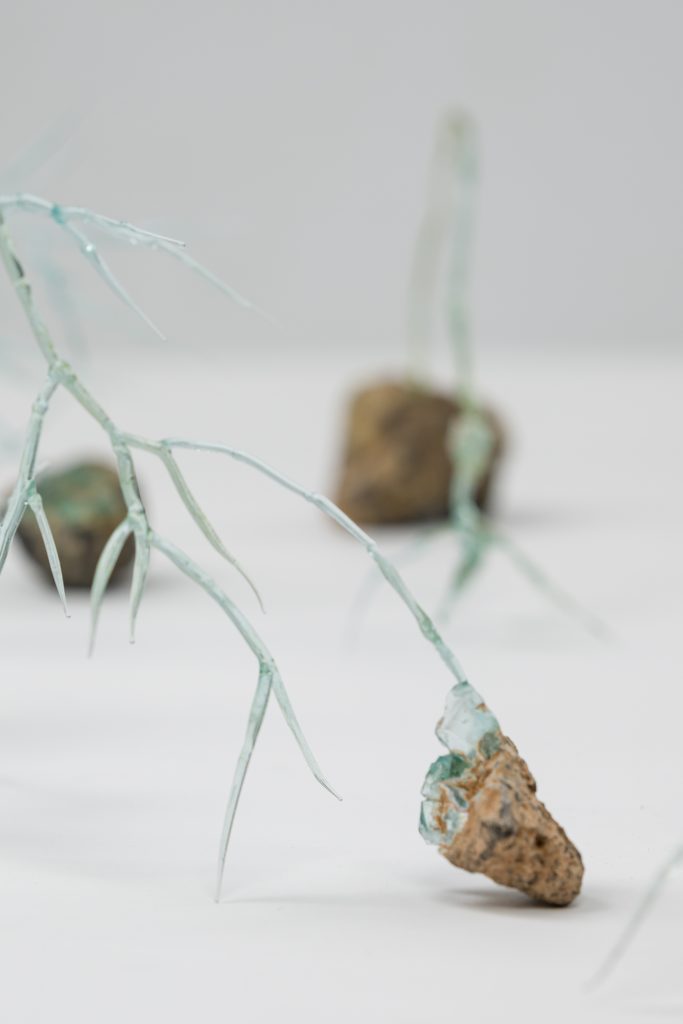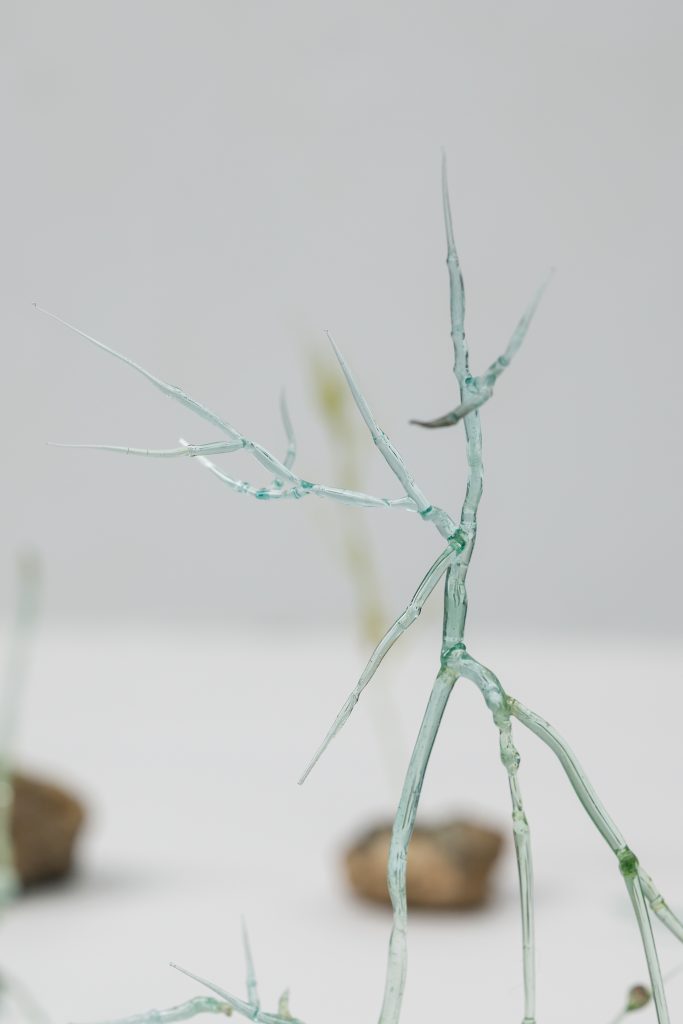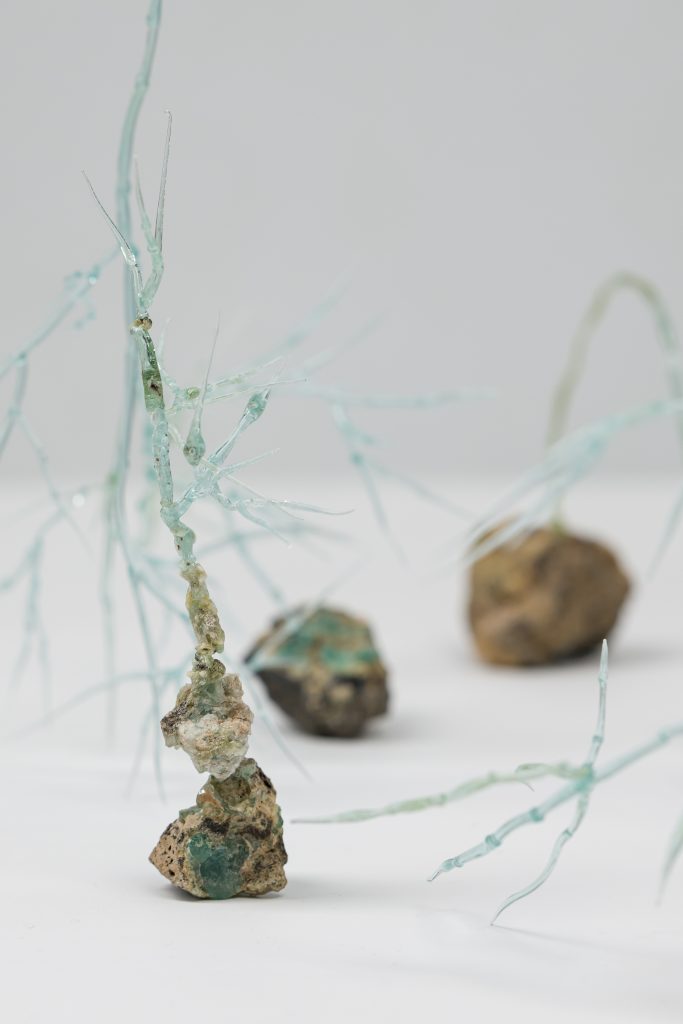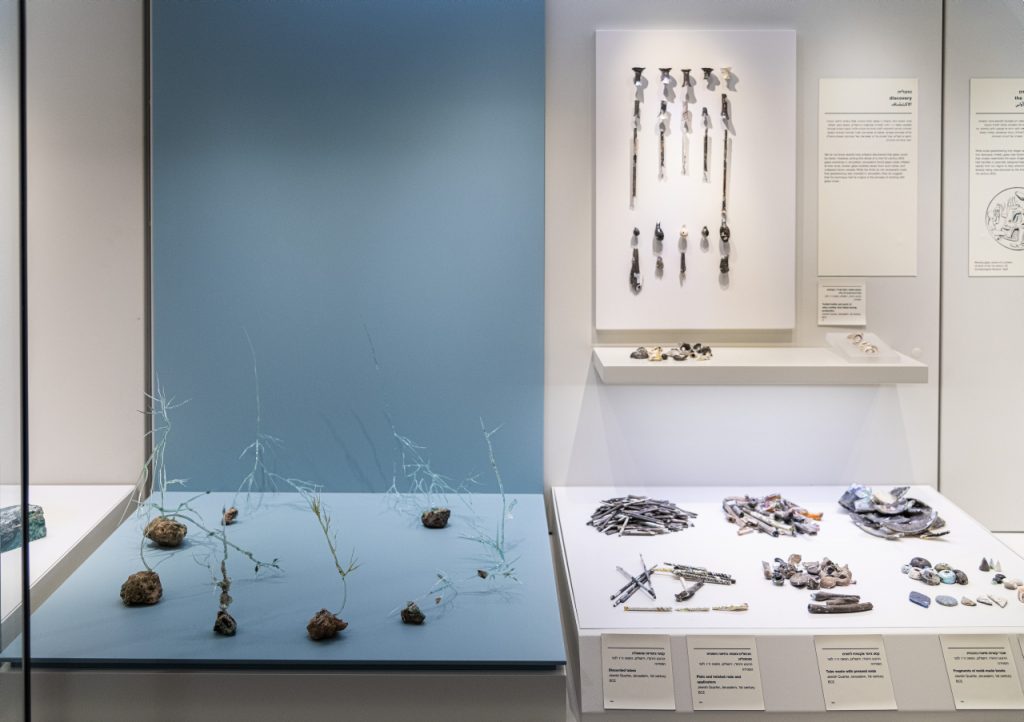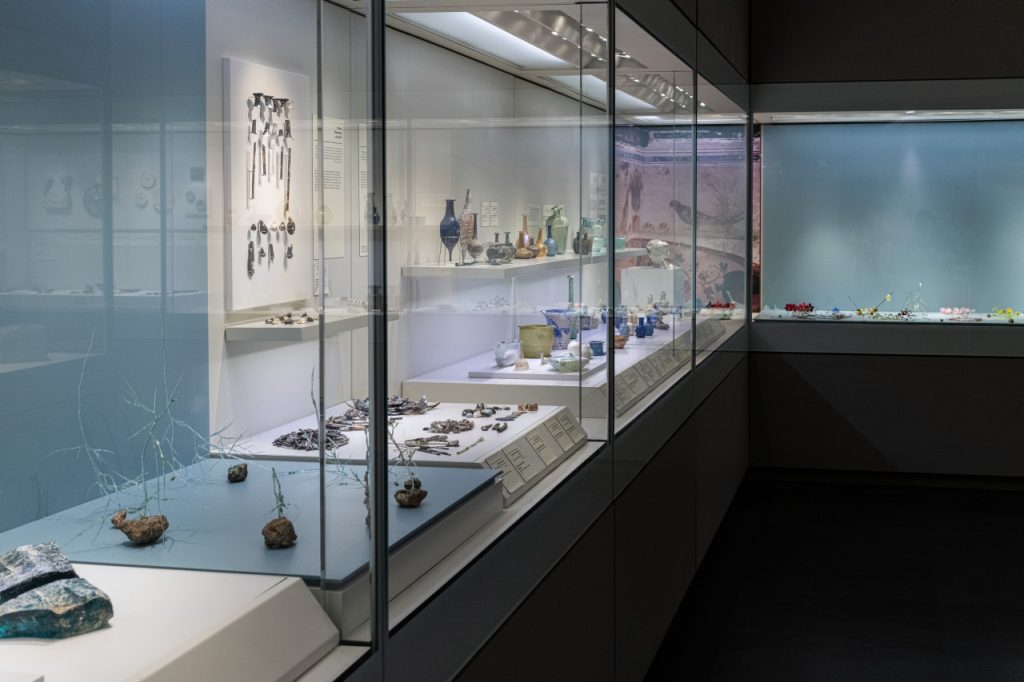Dafna Kaffeman: Fragile Land
Curator: Ruth E. Jackson-Tal
A walk along the beach south of Acre, toward Haifa, will inevitably reveal that the sand in this particular section of the coastline sparkles more. According to historical sources, archaeological evidence, and current research, the sea sand in this area is rich in silica, making it particularly suitable for glass production – one of the important export industries in our region from the 4th century CE – the late Roman period – to the 8th and 9th centuries CE – early Islamic times.
The works of contemporary artist Dafna Kaffeman, which have been integrated into the exhibition of ancient glass, revive the local glass industry, which until the beginning of the 20th century was one of the important traditional crafts in the country. In her works, Kaffeman uses contemporary glass rods and ancient raw glass chunks found in excavations to recreate wheat, thorns, the red everlasting ("blood of the Maccabees") flower, local acacia and pine trees, and even the Oriental hornet, a species that has inhabited the region since ancient times.
From budding and blooming to wilting and withering, these delicate creations are moments frozen in time; they are portrayed with extreme realism, but will never grow again. The display touches upon the contrast between disappearance and continuity, frailty and resilience, transparency and opacity, memory of the past and the fragile reality of our present lives.
Just as the growth of plants and the building of hornets' nests are directed toward the center of the earth by gravity, so too does the artist mark in her work the place where everything was and will be.
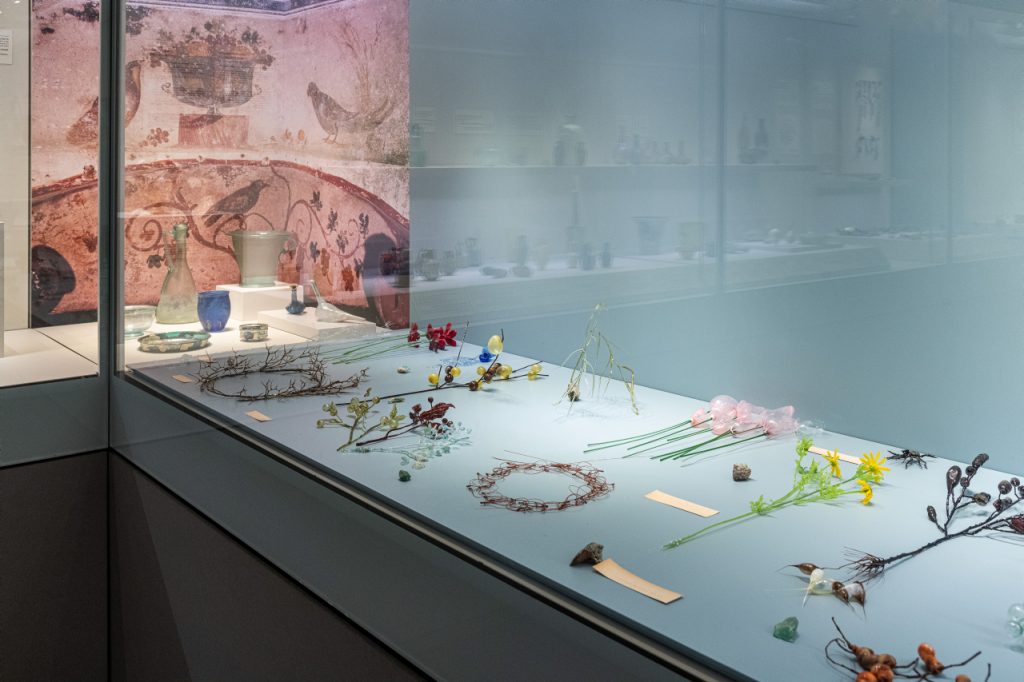
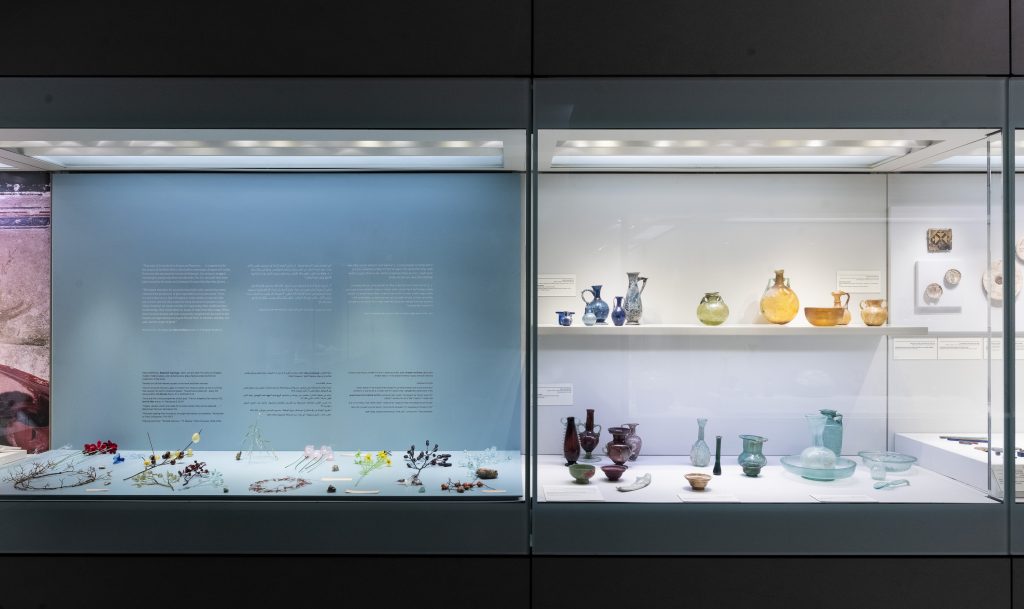
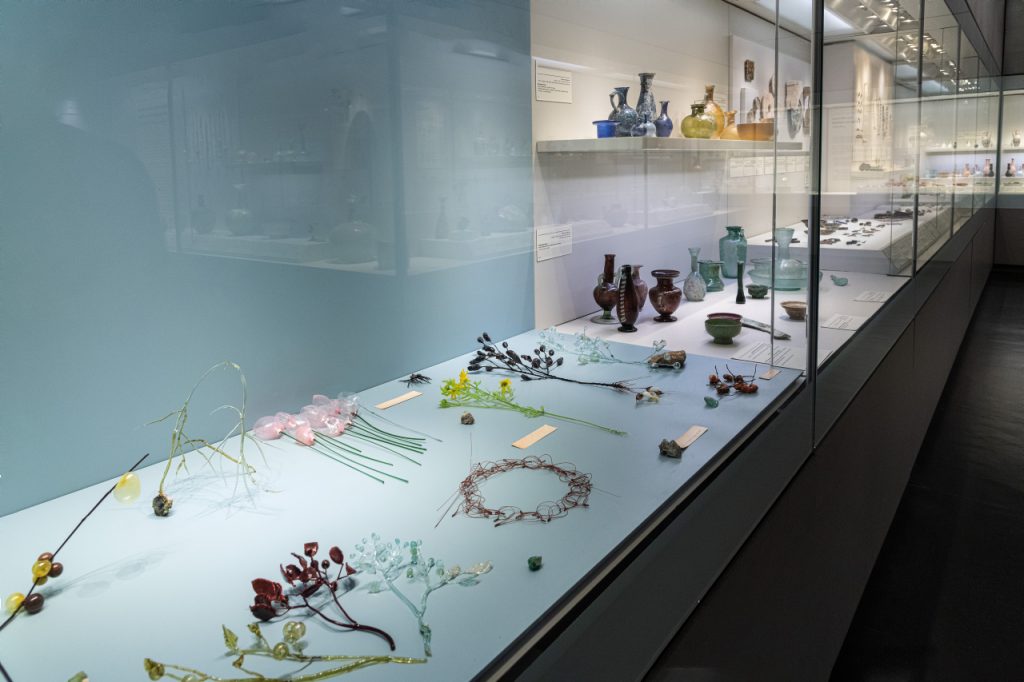
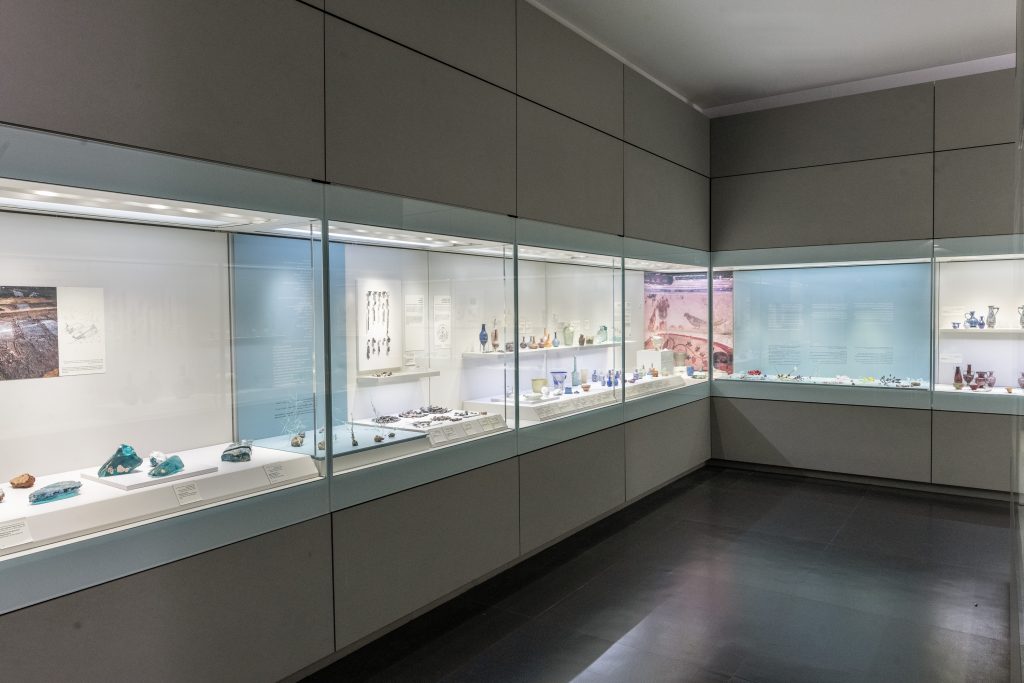
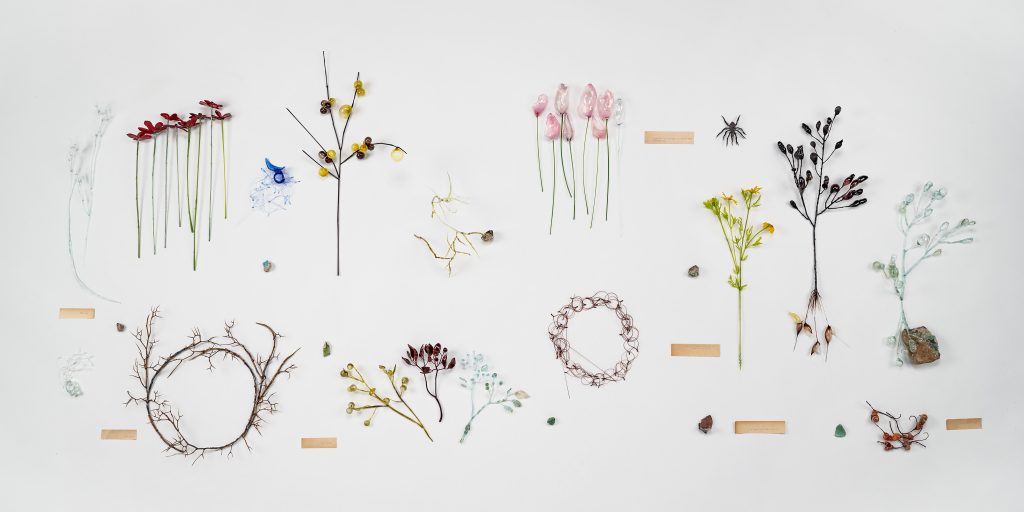
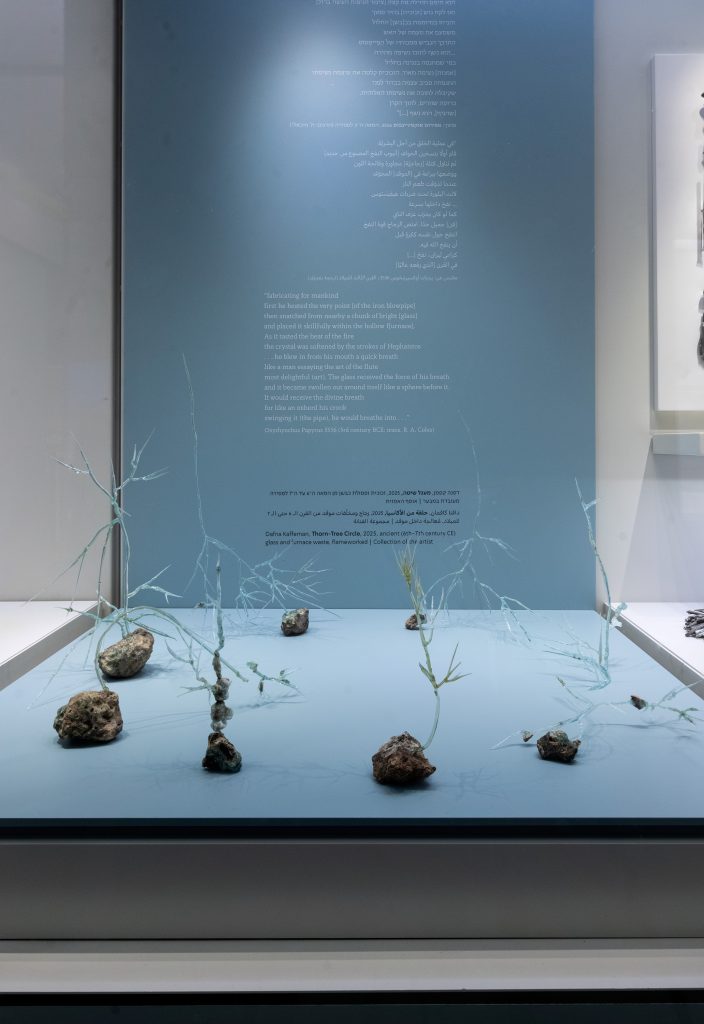
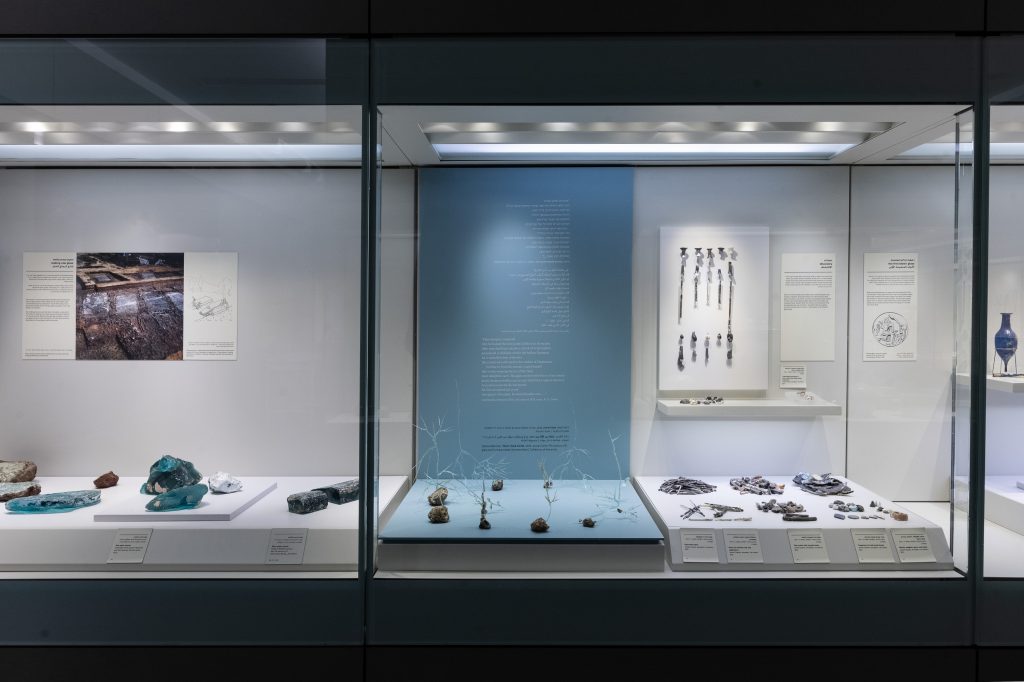
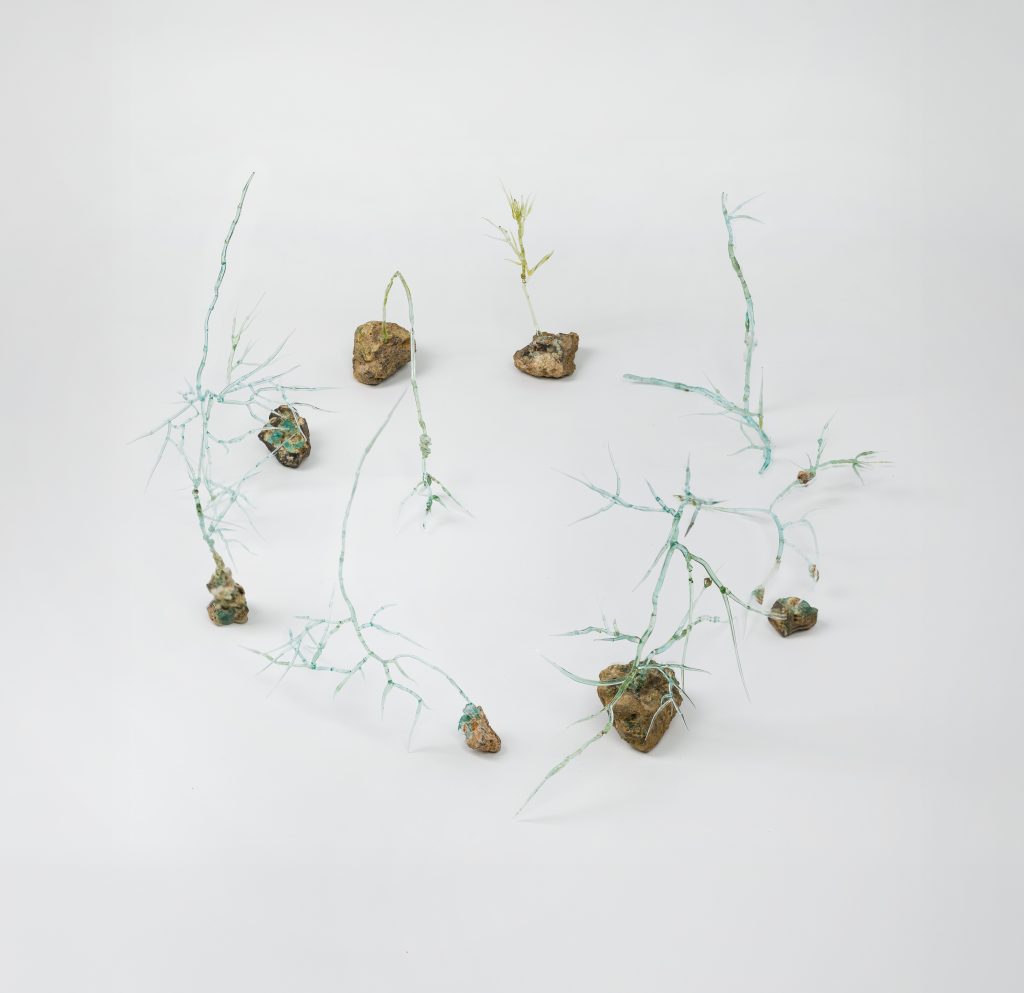
Thorn-Tree Circle, 2025, ancient (6th–7th century CE) glass and furnace waste, flameworked
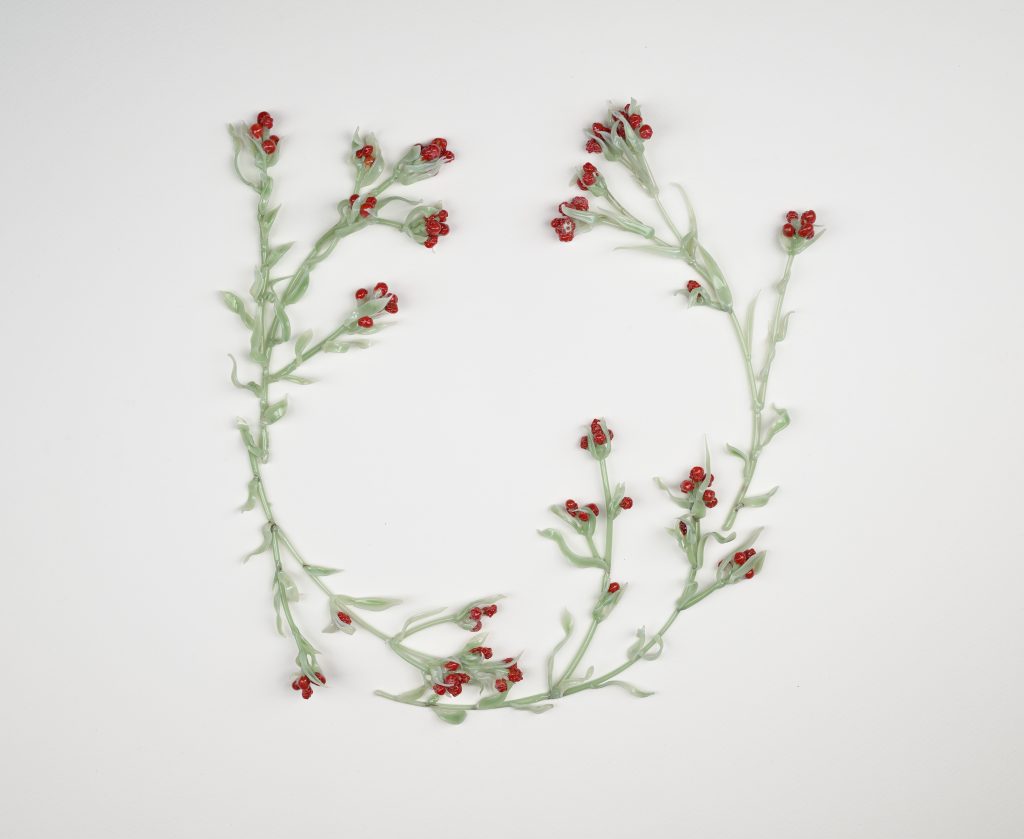
Red Everlasting ("Blood of the Maccabees"), 2025, flameworked glass
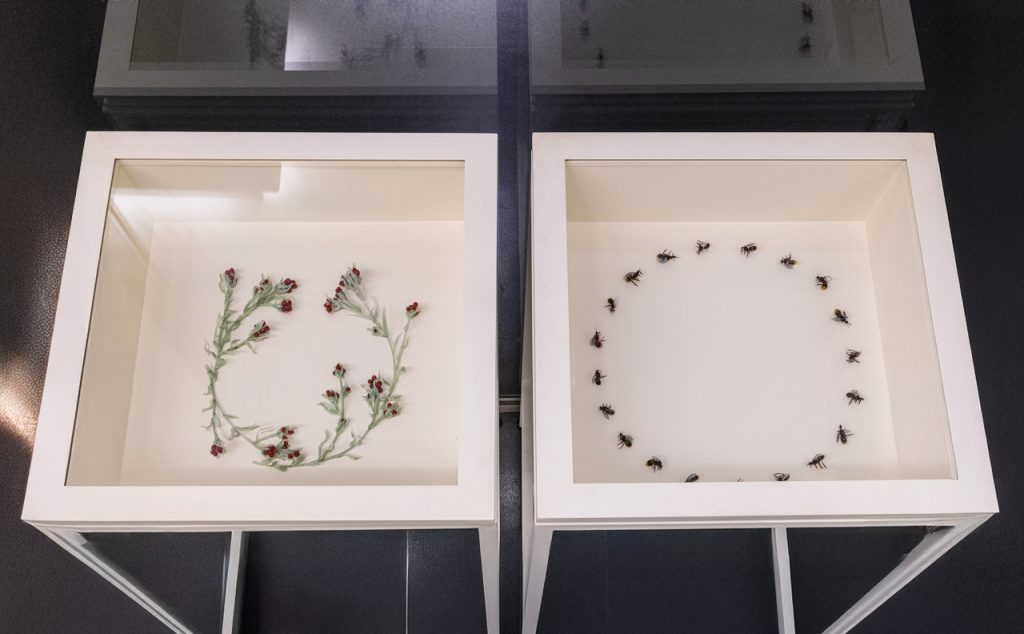
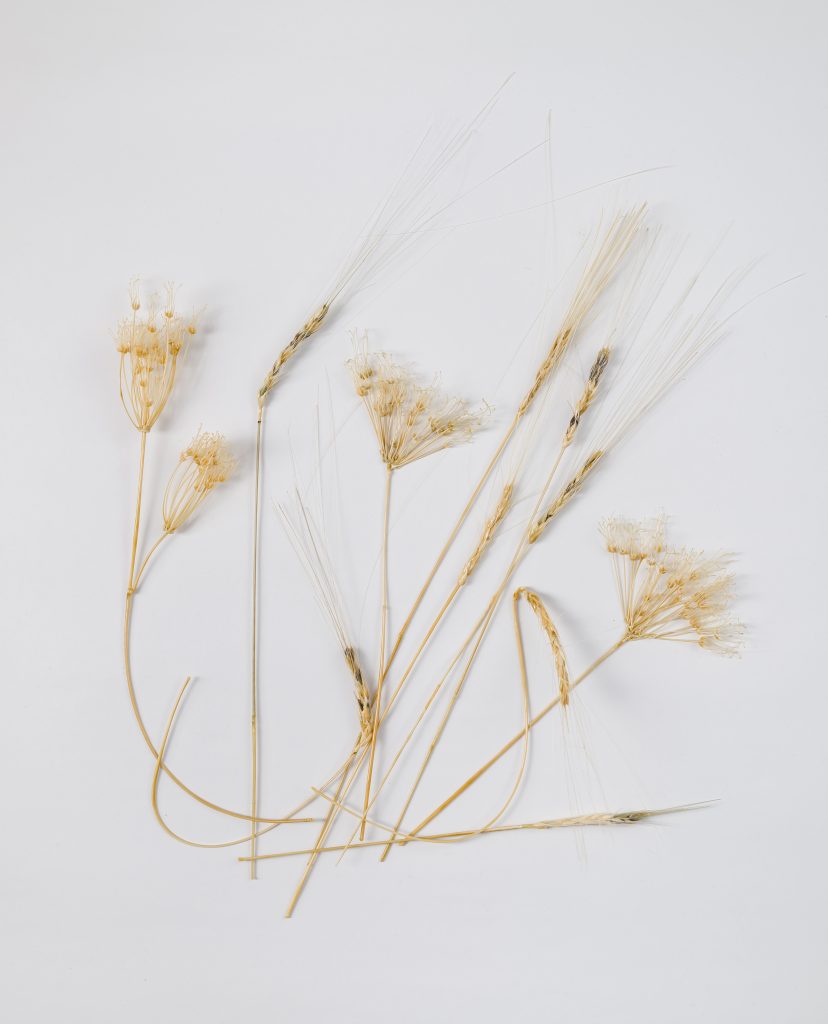
Cultivated Plants, 2025, flameworked glass
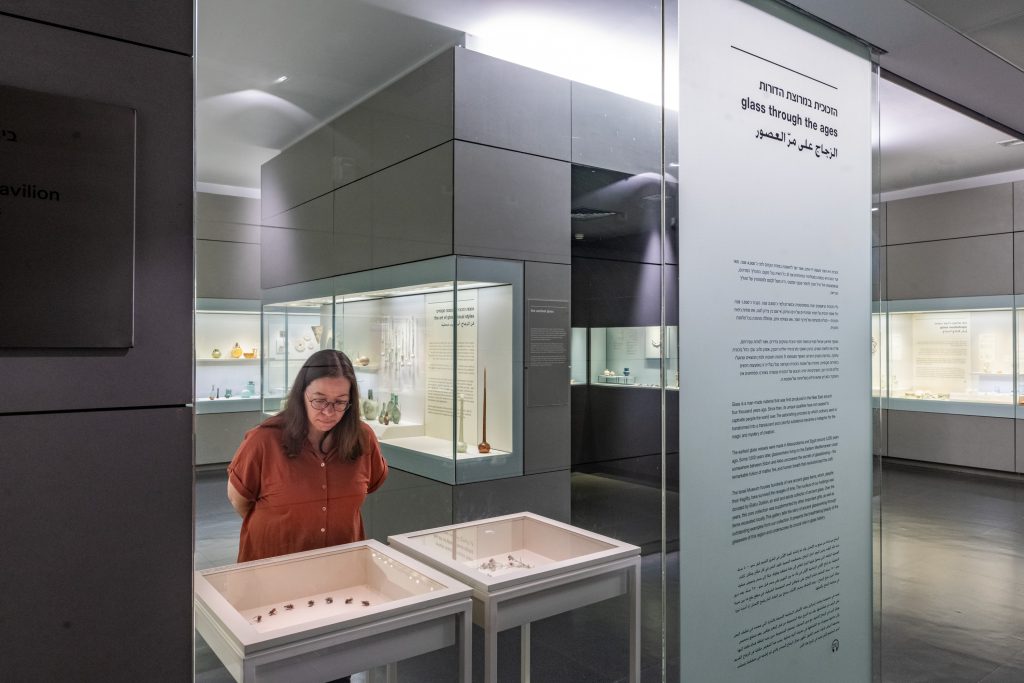
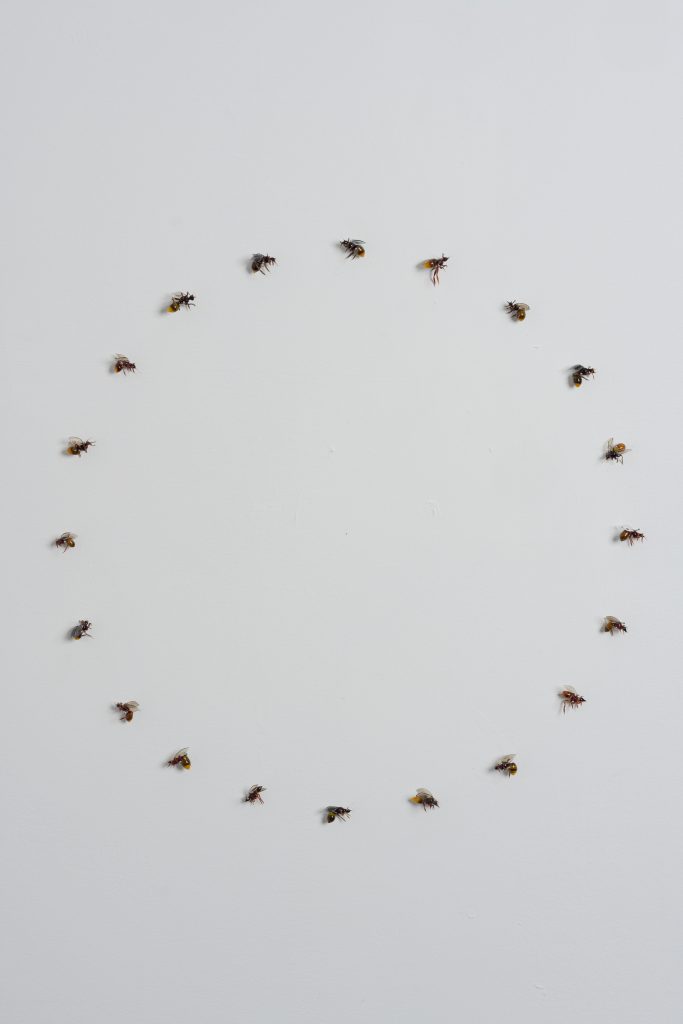
Oriental Hornet Circle, 2025, flameworked glass
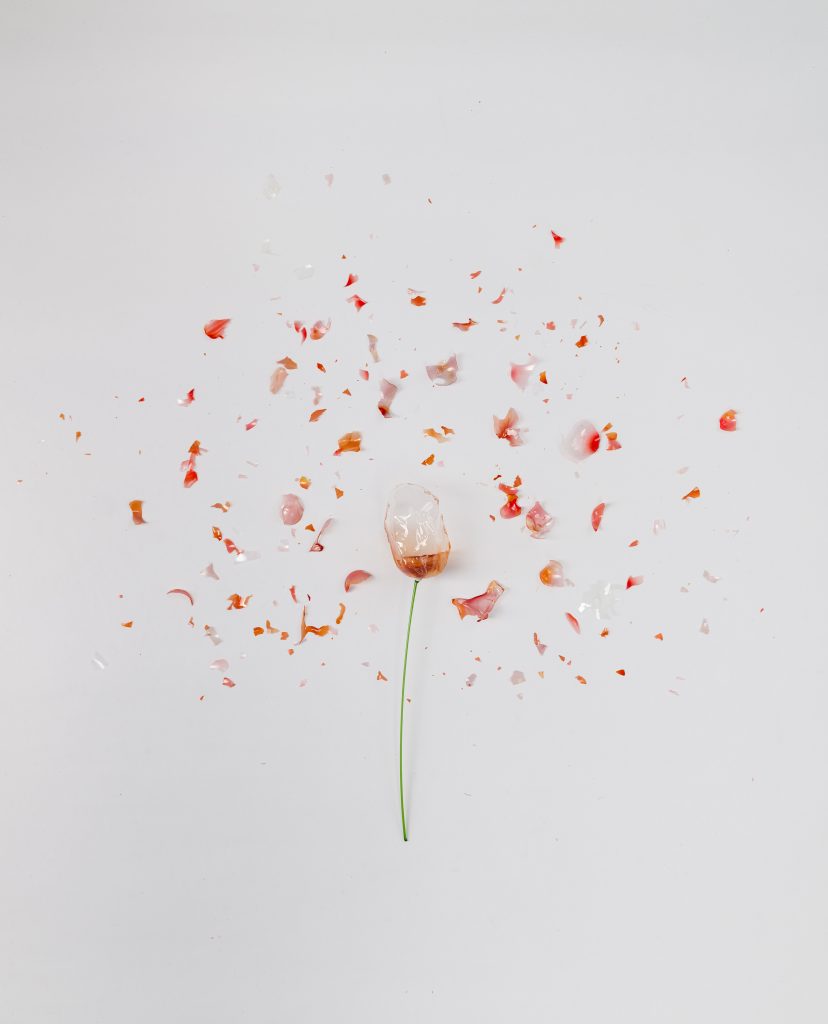
Fractions, 2025, flameworked and blown glass
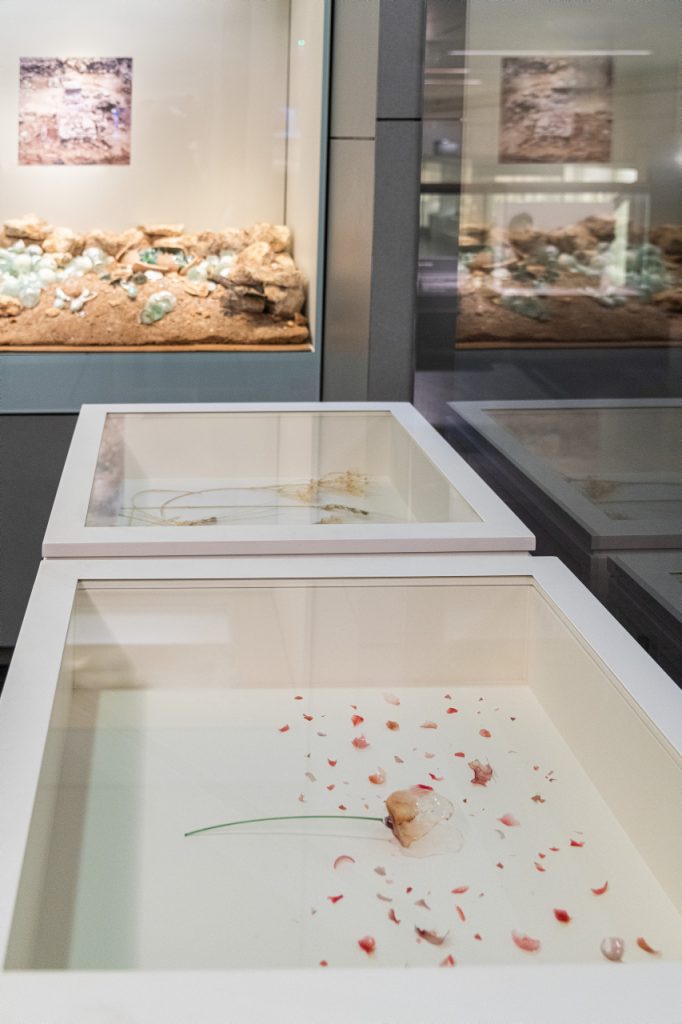
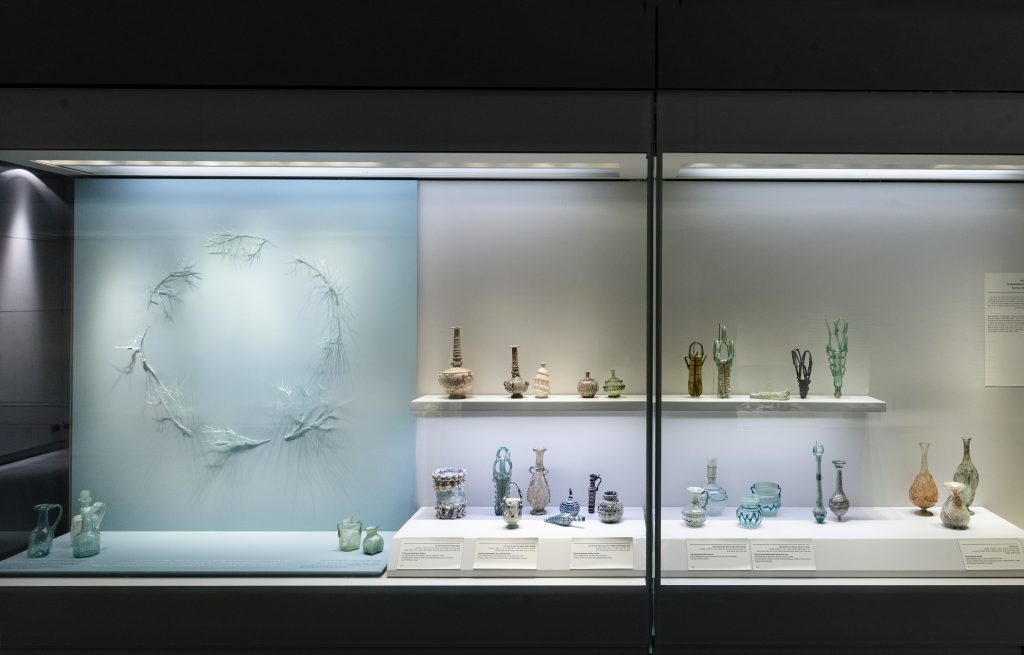
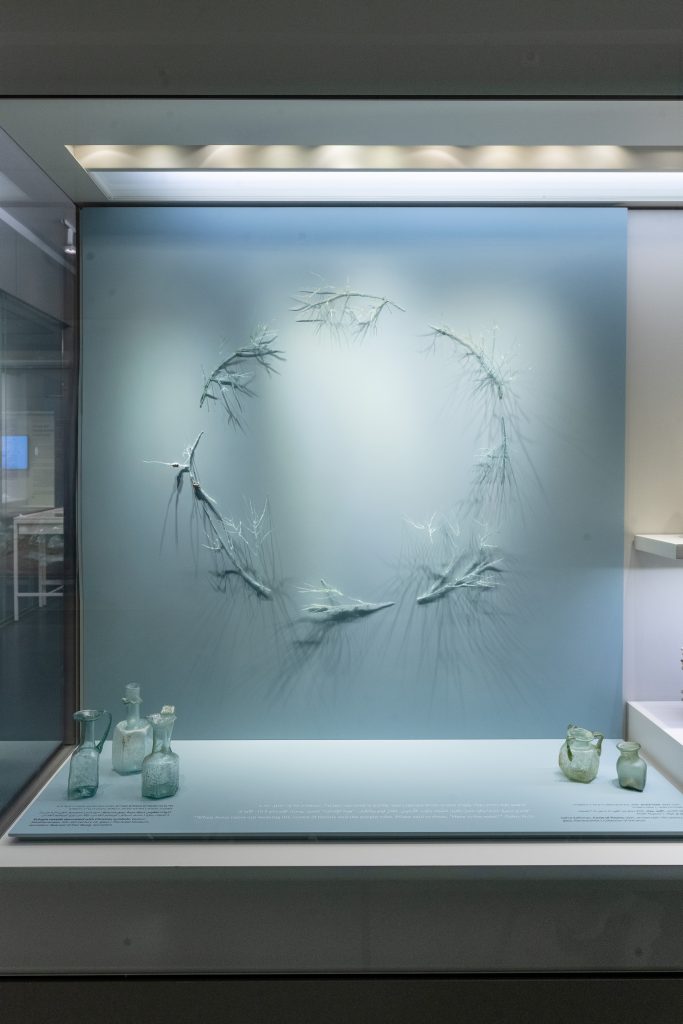
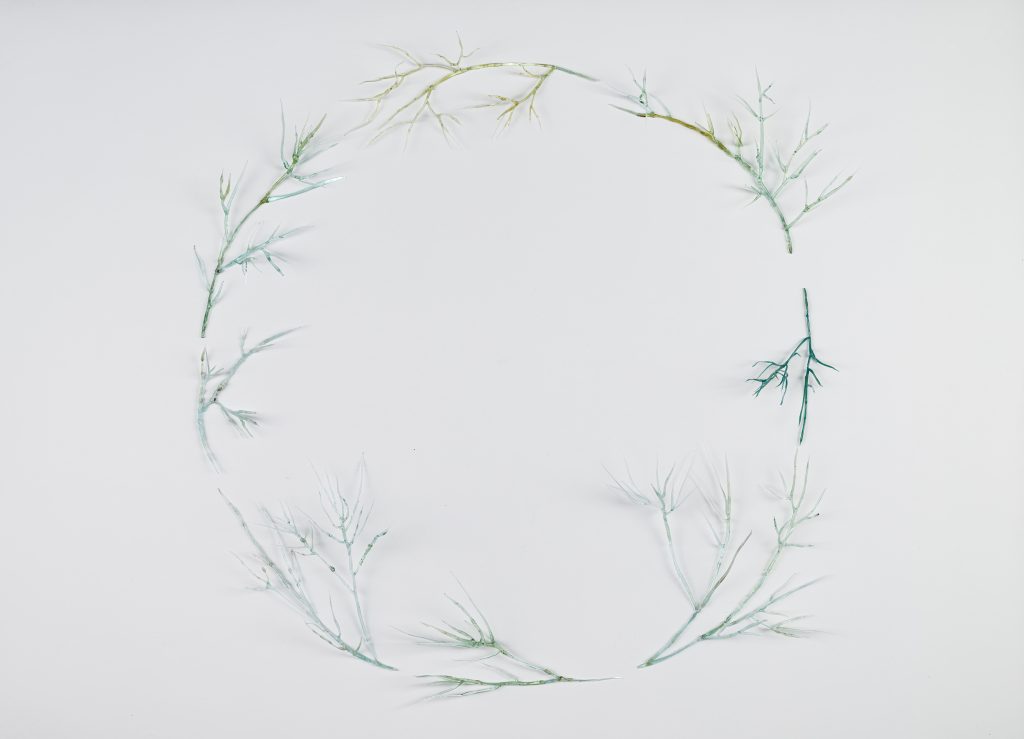
Circle of Thorns, 2025, ancient (6th–7th century CE) glass, flameworked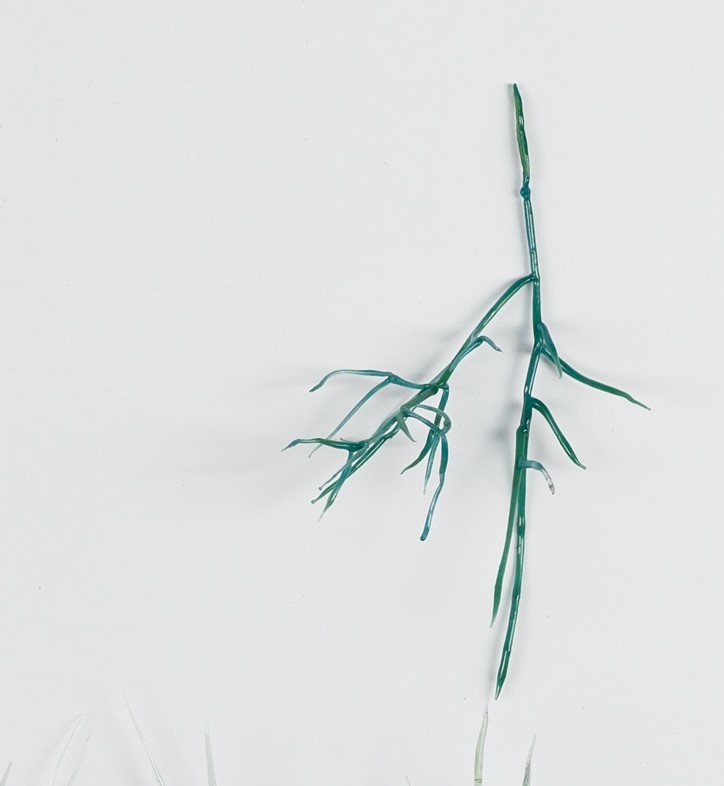
???????????????
"Dafna Kaffeman created her "Circle of Thorns" from glass, a fragile and delicate material but also one that can pierce. The circle is made of antique glass using a special technique developed by the artist, thus connecting the past with the present. This is a round wreath, but it is not a wreath of abundance, but a minimalist wreath, fragile, imperfect, and not completely connected. The delicate roundness of the glass twigs suggests the cycles of nature and the power of growth, but also pain and vulnerability, and most of all, fragility. The stranger seems to strive for perfection, but he is cut off. At a time when the country is on a pendulum between a never-ending war, kidnappings and the dead, and a desire for routine, sanity and life, this cut-off stranger of Kaffeman has a special meaning – between the longing for eternity and continuity and the triumph of life and creativity, and the fragility, memory and immense sorrow for the fallen and the suffering that surrounds this period of war."
Dr. Amitai Mendelsohn, senior Curator of Israeli Art in the Israel Museum, Jerusalem


